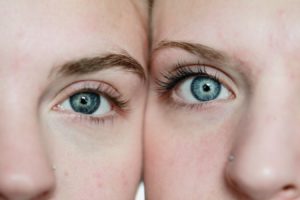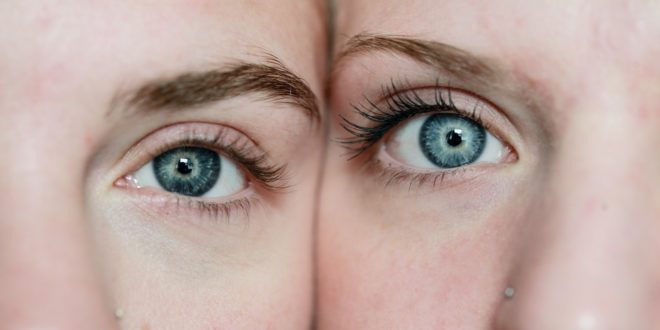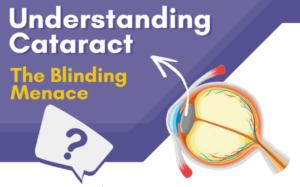
Mascara is one of these utterly ordinary things millions of women use every day everywhere in the world without giving much thought to the health risk it can represent. It’s just such a normal thing that nobody even considers it could actually be bad for you in any way.
Let’s be clear about this article’s purpose. We’re not going to preach against mascara or any other kind of makeup. We don’t want to scare any woman at all, we just want to let them know that wearing mascara does pose something of a risk and it should be talked about. In the end, this is like drinking coca cola or eating chocolate: it’s not about avoiding them always but about reading labels carefully and finding out what you’re putting in your body so your decision is well informed. Some cosmetic products are toxic indeed but in today’s cosmetic world there are some natural options that allow you to keep using mascara and avoid toxicity at the same time.
So can mascara really be a cause for cataracts? The American Optometric Association’s site offers no information about this at all. Neither does the Mayo Clinic, WebMD nor the National Eye Institute. It’s something of a myth, a theory that does not make that much sense and is not backed up by any kind of scientific research. But some other facts are known. Eye make up can cause eye irritation and inflammations like conjunctivitis (pink eye). It all gets worse if you share your make up with somebody else or if you keep it near your eyes for too long. You probably already know that applying your mascara or your eyeliner needs a bit of skill and practice so that you don’t have an accident that ends up as a corneal abrasion, accidental jab or scrape.
Cataracts happen when your eye’s lens, which is normally transparent, becomes clouded and light doesn’t go through anymore. AOA’s describes cataracts in these words ” The lens is located inside the eye, behind the iris, which is the colored portion of the eye. The lens focuses light on the back of the eye, the retina. The lens is made of mostly proteins and water. Clouding of the lens occurs due to changes in the proteins and lens fibers.” As stated by the AOA the lens is deep inside the eye so makeup can’t really reach it. But it can reach the surface, where your conjunctiva is and cause inflammation (conjunctivitis).
The AOA website also gives the main reason for cataracts as age-related. That’s the current scientific consensus (but it can still happen to young people, even if only rarely). The site explains the risk factors as well. Cataracts are more frequent in people who have taken medical drugs such as corticosteroids or Chlorpromazine and drugs from the phenothiazine family for a long period. Diabetes, heavy alcohol use, trauma, family history, lack of proper nutrition (antioxidants, especially) tobacco use and overexposure to ultraviolet light also increase the chances of developing a cataract. While the condition has been found in infants, it’s extremely rare for babies to be born with cataracts or to develop them.
So there is no evidence at all that mascara can cause cataracts. It can be an irritant at most, but it can’t reach the eye’s lens or affect it. But that doesn’t mean you shouldn’t take good care of your eyes and your vision. You should always eat your fruits and vegetables and drink a reasonable amount of coffee (fresh) so your body has the antioxidants it needs to prevent cataracts (while age seems to be the common denominator in cataracts, scientists agree it’s all about oxidative stress), wear sunglasses and do your best to keep ultraviolet light away from your eyes. Visit your eye doctor twice a year for a check-up, don’t spend too much time every day reading from your computer’s monitor or your cell phone. In short, take care of yourself and your eyes, use common sense to take care of your vision. Just live healthily. If you take good care of your eyes, they will take good care of you. While cataracts can indeed be treated and cured, it’s still a better idea not ever develop them.
Rebecca Evans is a Registered Nurse and health writer.
Check out Rebecca’s handy infographic to learn more about what cataract is, who’s affected, symptoms and diagnosis.










Join the Discussion
Type out your comment here:
You must be logged in to post a comment.